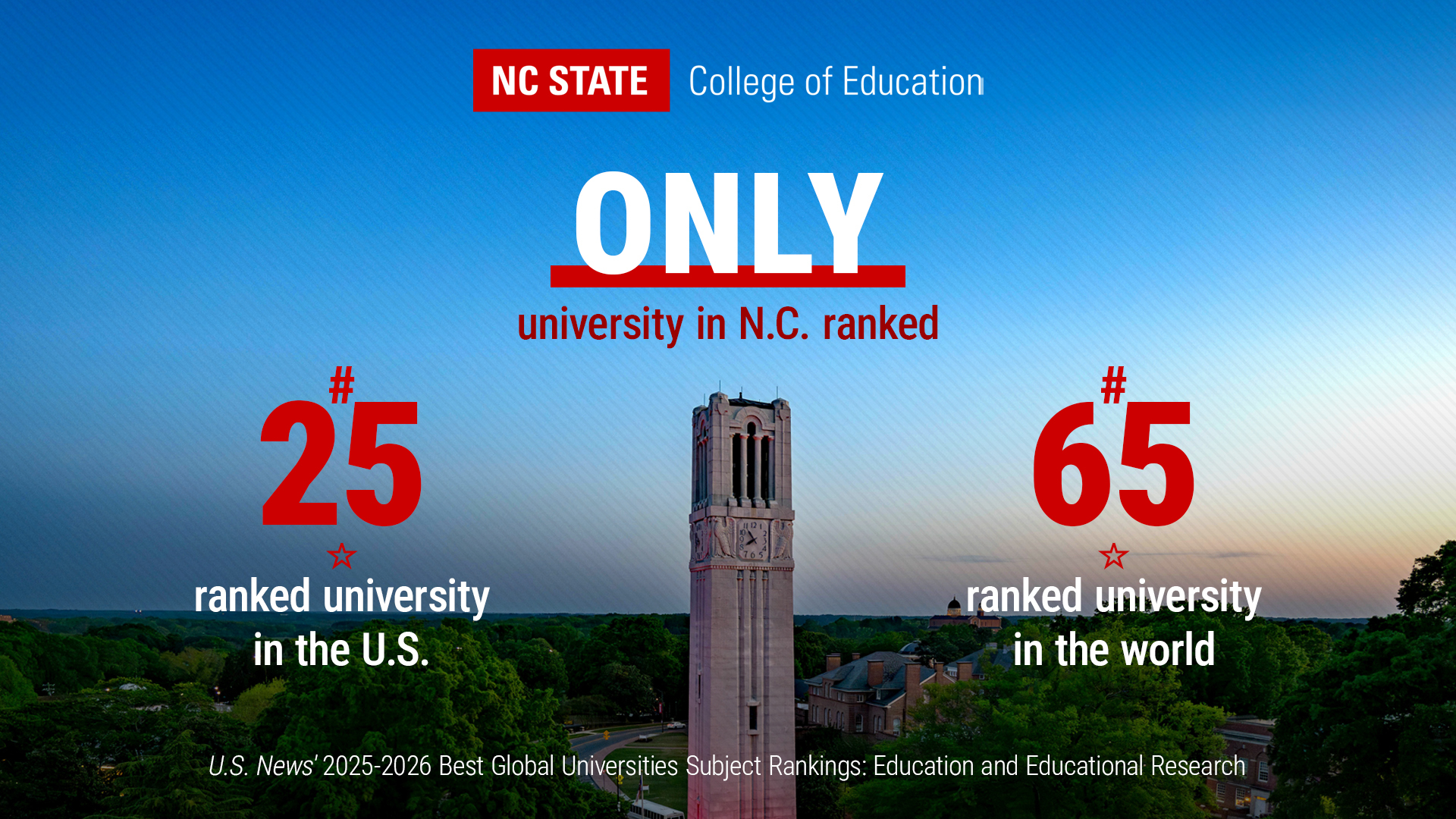Associate Professor Jessica Hunt Selected to Participate in National Science Foundation’s Ideas Lab

Jessica Hunt, an associate professor of mathematics education and special education in the NC State College of Education, is one of 35 scholars across the country selected by the National Science Foundation to participate in their most recent Ideas Lab.
The Ideas Lab is an intensive meeting that brings together diverse perspectives to focus on finding innovative, cross-disciplinary solutions to a grand challenge. The lab that Hunt was selected to participate in will focus on Personalized Engineering Learning with the goal of extending engineering education research to enable advanced personalization in pedagogy and assessment in both K-12 and higher education contexts.
“By participating in the Ideas Lab, I hope to learn with the larger community and participate in the generation of new ideas that can serve as points of access, advancement and identity for individuals who have been historically left of out STEM and engineering,” Hunt said. “I’m enjoying the conversations and connections with individuals who bring similar and dissimilar backgrounds and research interests as my own.”
Hunt attended the first Ideas Lab meeting on Feb. 26 and will continue to engage with it through virtual meetings over the next few months. Although she cannot disclose the specifics of what was discussed at the first meeting, she said she enjoyed getting to know the different areas of expertise the participants brought to the room.
Hunt’s research focuses on helping students with learning differences and disabilities succeed in mathematics and has recently focused on building asset-based learning environments. Her current National Science Foundation-sponsored project has enabled the development of the award-winning Dream2B game and accompanying Model Mathematics Education (ModelME) curriculum to help students better understand fractions through scenarios rooted in real-life STEM careers.
She said she believes her own experience with work related to equity, individual difference and varied modalities to support how people know themselves and use that knowledge to empower their own learning will help contribute to the overall goals of the Ideas Lab.
“Students with disabilities, in particular, are more diverse than they are similar. Systems that take in nuanced data must proactively account for individual differences as a function of their design, especially if we are to broaden and sustain participation in engineering education by diverse groups,” she said. “My hope is that my contributions can combine with others to engineer asset-based learning environments for all citizens.”
- Categories:


